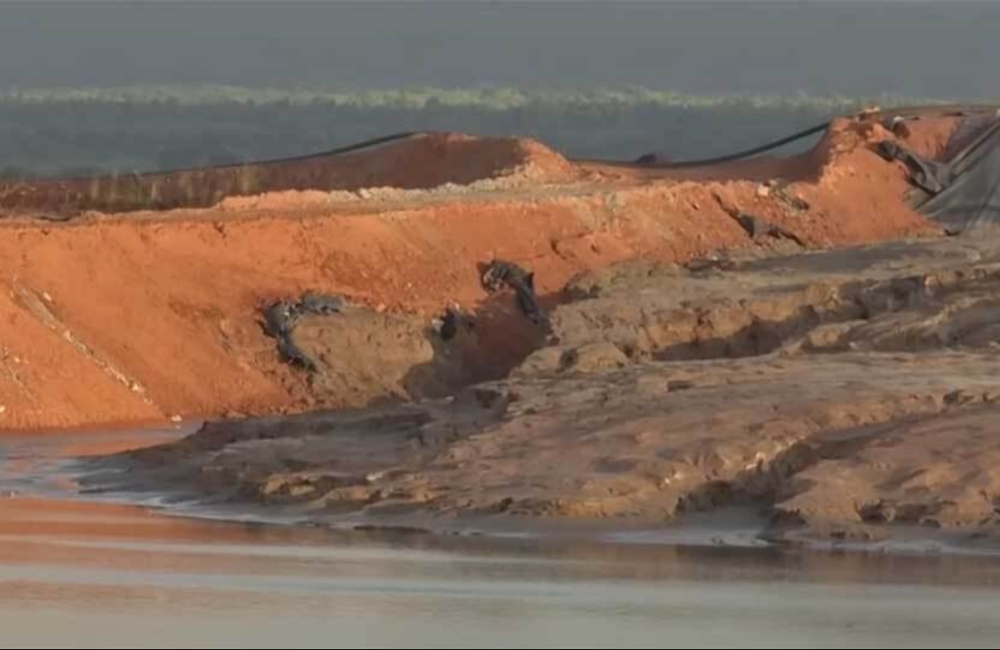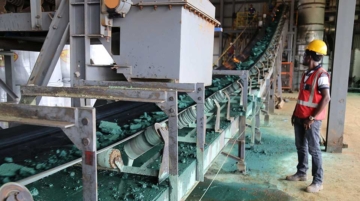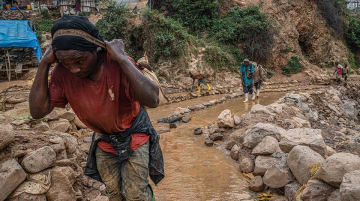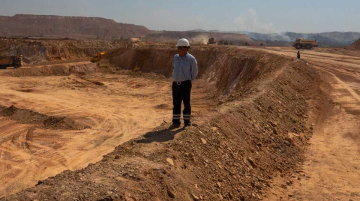
An environmental disaster caused in February by the collapse of a tailings dam at the Chinese-owned Sino Metals Leach Zambia copper mining site triggered a series of public health concerns.
International media, particularly in the West, covered the fallout extensively, prompting the U.S. Embassy in Zambia to issue a health alert urging American citizens to evacuate the Chimbisi area and avoid all natural water sources or consuming fish likely to have come from the affected zone.
But while Zambian voices were amplified across Western media, Chinese media maintained a conspicuous silence for months.
That silence has now been broken, not through official channels, but via Chinese social media, where commentary has erupted following the announcement of multiple lawsuits by affected communities. In one of the suits affected communities and farmers are demanding $80 billion in compensation from Sino Metals Leach Zambia.
The Chinese Media Vacuum, Now Filled Online
This abrupt shift from near silence in Chinese media outlets to heated debates online illustrates the fragmented nature of global media ecosystems.
While Western outlets portrayed the disaster as a symbol of lax environmental oversight and impunity among Chinese companies, Chinese social media commentators took an interest after the lawsuits were made public.
What is clear is that media narratives are closely tied to national interest. Once the lawsuit became a perceived threat to a major Chinese investor abroad, the conversation turned urgent.
The lawsuits, filed by affected Zambian villagers, immediately struck a nerve among Chinese commentators. The scale of the demand seemed implausible.
“This isn’t compensation; it’s outright robbery,” one Chinese social media user wrote.
From my perspective, while this framing is extreme, it does reflect genuine disbelief. The amount sought is roughly three times Zambia’s annual GDP, which defies legal and economic logic. Even from a human rights or environmental justice lens, the demanded sum far outstrips the capacity of Sino Metals Leach to pay.
However, civil society and affected communities in Zambia are well within their rights to demand accountability, but the figure claimed undermines the credibility of what could otherwise be a legitimate grievance.
“If this were truly a natural disaster harming the public, you could at least understand. But 11 farmers demanding $80 billion? Who is behind this?” another Chinese user asked.
This sentiment taps into a broader fear in China that the lawsuit is not purely about compensation, but part of a larger geopolitical strategy to push Chinese companies out of resource-rich African markets. It’s a suspicion that deserves interrogation, not because the environmental damage is trivial (it’s not) but because great power rivalries often weaponize local discontent.
From Flooding to Narrative Warfare
According to Sino Metals Leach and many Chinese voices, the cause of the disaster was not negligence, but unusual heavy rains. They argue the company acted swiftly, sealing the breach and cooperated with the Zambian government in investigations and environmental restoration.
Chinese commentators insist the flooding was a natural disaster, and reconstruction should be the government’s responsibility. In their view, Sino-Metal became a convenient scapegoat in a country battling poverty, unemployment, and a debt crisis.
Yet, it’s important to note that under Zambian law, communities have the right to sue corporations without government initiation. The legal system permits such actions precisely to ensure access to justice for citizens impacted by corporate activities.
“Friends, what does $80 billion really mean? It’s more than Zambia’s total fiscal revenue over the past 20 years… Is this a sky-high compensation claim, or a carefully orchestrated international maneuver?”
This question, posed in a viral Chinese post, again illustrates the anxiety over precedent. The fear is that if Zambia can demand such sums, others will follow, destabilizing Chinese investments across the continent. And in fairness, these concerns are not entirely unfounded. There have been similar patterns elsewhere, including Niger, where a Chinese firm faced asset seizures under a new military government.
However, to cast the villagers as pawns in a global chess game is to ignore the genuine environmental suffering that many communities face due to mining projects, Chinese or otherwise. Zambia’s civil society has been raising alarms on water pollution, food safety, and health hazards for years. These are not inventions of a geopolitical agenda, even if external actors may seek to exploit them.
Losing the Narrative Battle
For many in China, the real threat is not the lawsuit itself, but the loss of narrative control.
“The West has long controlled global ESG rules. Even when Chinese companies do a lot right, they struggle to tell their story. Good work is seen as expected; any mistake becomes proof of failure,” one commentator said.
This is a crucial point. Chinese companies often fail to engage effectively with local media, NGOs, or affected communities. Instead, they rely on technical compliance and government partnerships, while leaving a vacuum in public discourse, one that civil society, Western media, or rival interests are all too willing to fill.
A Call for Security — and Strategy
Some commentators have even gone further, arguing that Chinese companies should deploy private security firms or troops abroad to protect their investments. This is not a fringe idea in China’s policy circles. Already, Chinese companies in volatile regions have hired private firms to safeguard operations.
But this approach risks deepening local resentment and reinforcing the image of China as an extractive power. Security cannot replace legitimacy. If Chinese investments are to thrive in Africa, they must be grounded not just in contracts and infrastructure, but in social license, transparency, and meaningful community engagement.
The $80 billion lawsuit against Sino-Metal is about far more than compensation. It reflects the intersections of environmental harm, civil society demands, debt politics, and great power rivalry. It is also a mirror showing Zambia’s desperation for resources, Beijing’s fears of reputational loss, and the West’s leverage in shaping global ESG norms.
For affected Zambian communities, the hope is for justice and meaningful remediation. For Sino-Metal, the lawsuit is both a financial risk and a public diplomacy crisis. And for China, the case underscores a broader truth: hard infrastructure must be matched by soft power, including legal credibility, ethical business practices, and transparent communications.







